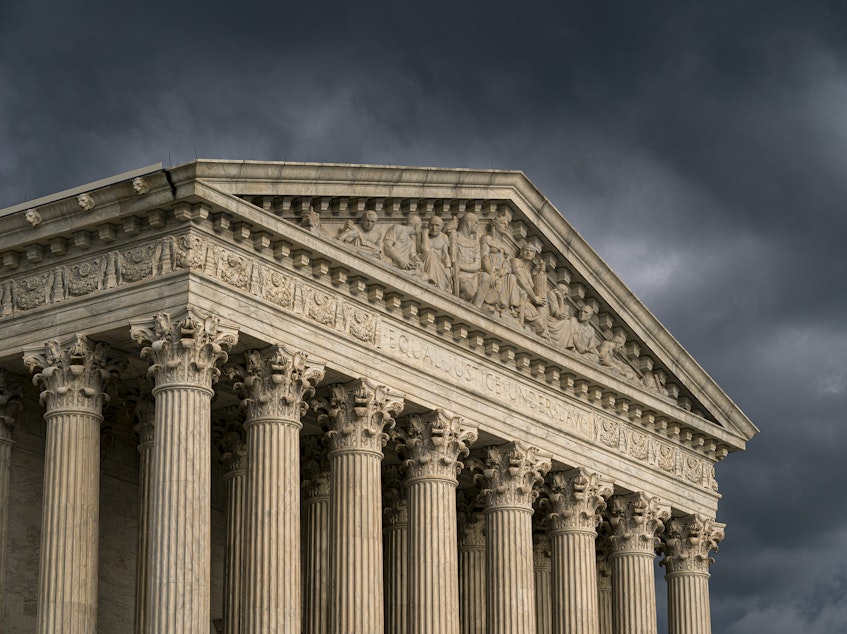Supreme Court To Take Up First Major Gun Rights Case In More Than A Decade

In a major foray into gun rights, the Supreme Court on Monday agreed to take up a lower court ruling that upheld New York's restrictive gun-permit law.
At issue in the case, NY State Rifle & Pistol Assoc. v. Corlett, is how much the Second Amendment protects the right of individuals to carry concealed weapons outside their home for self-defense. The case will likely be argued in the fall.
The court's decision follows mass shootings in recent weeks in Indiana, Georgia, Colorado and California, and a surge in firearms sales, particularly to first-time gun buyers.
While most states permit gun owners to carry their firearms when they go out, New York and seven other states — California, Delaware, Hawaii, Maryland, Massachusetts, New Jersey and Rhode Island — have some restrictions.
In 2008 and 2010, the high court overturned handgun bans in Washington and Chicago in a pair of landmark cases that redefined gun rights in the U.S.
In those cases, a sharply divided court ruled that the Second Amendment right to bear arms is an individual right, not one associated with the militia, as the court had previously implied. Those decisions marked a huge victory for the National Rifle Association and other gun-rights organizations.
However, in the past decade, the court has largely avoided gun rights cases. The latest case out of New York state would be the first major firearms ruling since Justice Amy Coney Barrett's confirmation last year, solidifying a 6-3 conservative majority.
In April 2020, the court sent a challenge to a New York City ban on carrying handguns outside the home back to the lower court without ruling, concluding that the case was moot because the city had changed already changed the law.
But in a concurring opinion at that time, Justice Brett Kavanaugh recommended that the justices take up another Second Amendment case soon, suggesting that the lower courts might not be properly applying the Supreme Court's earlier gun-rights rulings. [Copyright 2021 NPR]

